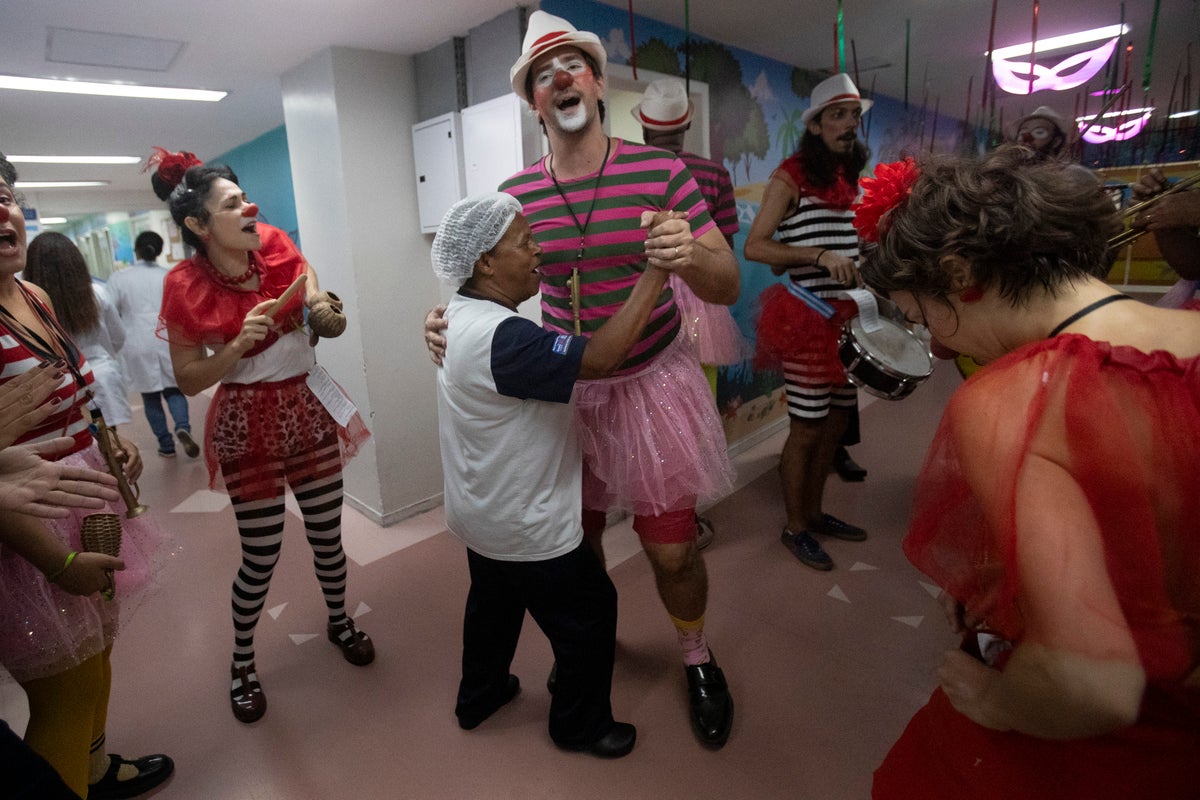
Your support helps us to tell the story
From reproductive rights to climate change to Big Tech, The Independent is on the ground when the story is developing. Whether it’s investigating the financials of Elon Musk’s pro-Trump PAC or producing our latest documentary, ‘The A Word’, which shines a light on the American women fighting for reproductive rights, we know how important it is to parse out the facts from the messaging.
At such a critical moment in US history, we need reporters on the ground. Your donation allows us to keep sending journalists to speak to both sides of the story.
The Independent is trusted by Americans across the entire political spectrum. And unlike many other quality news outlets, we choose not to lock Americans out of our reporting and analysis with paywalls. We believe quality journalism should be available to everyone, paid for by those who can afford it.
Your support makes all the difference.
Clowns complete with red noses and tutus delivered the joy of Carnival to sick children in a Rio de Janeiro hospital on Tuesday, bringing the ebullient festivities normally found on the streets straight to the young patients and their caregivers.
Street parties, known as blocos, are a fixture of Rio’s Carnival celebrations. They’re raucous, rambunctious romps with thousands, or even hundreds of thousands, of partygoers.
The vibrant chaos of Carnival street parties was, of course, unsuitable for sick children, so members of the Clown Circle project brought a gentler celebration to the State Servants Hospital in downtown Rio.
Musicians, clowns and even a standard-bearer danced their way through the corridors decorated with streamers and masks, inviting children, parents, nurses and doctors into a merry dance and moment of celebration.
“It’s a really good feeling, because staying in a hospital with a child is tiring,” said Moniky Fernanda de Nazaré Moreira, as she balanced her one-year-old son on her hip. “We need this to cheer the child up – and he loves a bit of a mess, so he had a lot of fun.”
While the trumpet, drum and banjo players played classic Carnival tunes, the clowns sought to create an individual interaction with each child, paying them a kind of attention that for once wasn’t medical.
“It really helps children improve,” said Ioma Rodrigues Klemz, a doctor on the ward. “You see children who are sometimes very withdrawn in bed who start to communicate more, sing, dance,” she added.
The saying goes that laughter is the best medicine, and clown projects in hospitals even bring joy to hospitals in war-torn places such as Ukraine.
The Clown Circle project in Rio offers weekly activities, creating themed performances around calendar events like Carnival.
In Brazil, Carnival officially ended with Ash Wednesday last week, but such technicalities didn’t stop the cheerful group. However, they adapt to the hospital environment, adjusting aspects like volume, explained Julia Schaeffer, a program coordinator.
“That’s what it’s all about; bringing the street party into the hospital for those who can’t be out,» Schaeffer said. “We bring it here with an extra dose of care.”
____
Follow AP’s coverage of Latin America and the Caribbean at https://apnews.com/hub/latin-america

